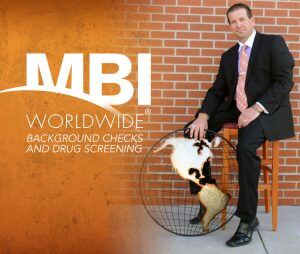How Does Legalized Marijuana Effect Drug Testing in Illinois
“Can I still smoke weed and go to work?” As you know many states have now legalized medical marijuana use. Illinois became the twentieth state to do...
2 min read
Admin : Oct 28, 2024 12:00:00 AM
The Pittsburgh City Council passed an ordinance that significantly limits circumstances in which employers are permitted to administer pre-employment drug testing for medical marijuana patients. Notably, Pennsylvania has had protections set in place for medical marijuana patients under Chapter 21 of Act 16 since 2016. Still, the previous guidelines did not explicitly prohibit testing medical marijuana patients for cannabis use.
The new measure specifically aims to protect medical marijuana users from workplace discrimination. It limits the circumstances under which employers are permitted to conduct cannabis drug tests, aligning employee rights with legalized medical marijuana use in Pittsburgh.
Mayor Ed Gainey signed the ordinance on September 24, 2024, after it was unanimously passed by the Pittsburgh City Council, putting it into effect immediately. The ordinance prohibits requiring pre-employment cannabis testing or testing during employment for medical marijuana patients. The ordinance applies to most employers, employment agencies, and labor organizations with five or more employees.
The full details of the Pittsburgh Medical Marijuana Employment Protection Ordinance are available in the City Council meeting notes here.
Under the new ordinance, employers are generally restricted from requiring pre-employment cannabis testing or testing during employment as a condition of continued or prospective employment. However, there are notable exceptions:
The new ordinance does not alter the definition of “employer,” which excludes further excludes certain religious, fraternal, charitable, and sectarian organizations.
In addition, the 2024 ordinance also allows disciplinary action and testing medical marijuana patients in certain situations, including:
The ordinance also notably allows room for employer rights to test for the suspected use of other illegal narcotics on the job and does not require businesses to permit the use of medical marijuana during work hours or on the premises.
Limiting cannabis testing for certain roles is a significant development for the City of Pittsburgh. The ordinance aligns the city with Pennsylvania state law, which permits medical marijuana use outside of work with boundaries for employer action.
Employers hiring or operating in Pittsburgh should consult their legal counsel to determine whether this ordinance applies to them. Additionally, limitations on employer drug testing in Pittsburgh is just one moving part of a nationwide movement to align with changing cannabis use laws. Employers in areas with legalized medical or recreational cannabis use may want to keep an eye on current laws and upcoming changes to employee protection laws as the landscape evolves.

“Can I still smoke weed and go to work?” As you know many states have now legalized medical marijuana use. Illinois became the twentieth state to do...

How will the 2020 Illinois’ Recreational Marijuana Law Impact Illinois Business Owners and Employers? Illinois boarded the magic bus this year and...

Article contributed by: K. Chapman President & Founder, MBI Worldwide, Inc.